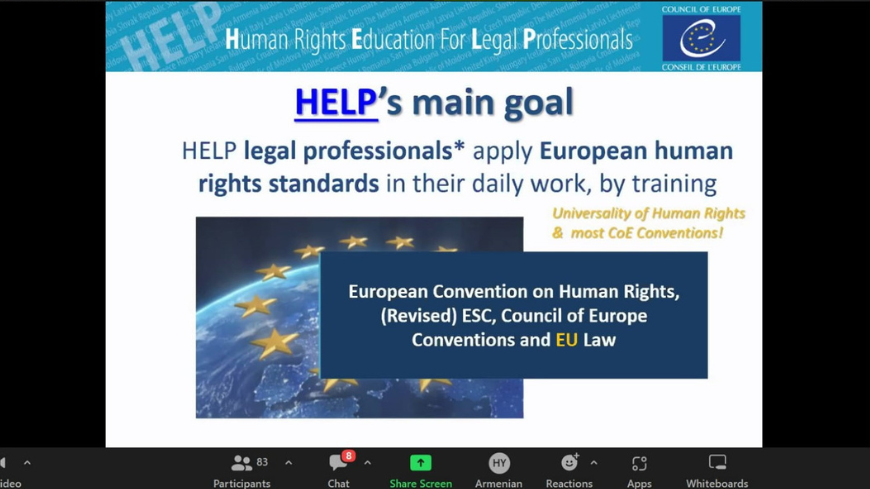On 8 December 2022, to mark the National Lawyers’ Day celebrated on 6 December in Armenia, the regional project on "Strengthening the Profession of Lawyer in Line with European Standards", in cooperation with Human Rights Education for Legal Professionals (HELP) programme and the Chamber of Advocates of Armenia, presented the HELP platform and its courses to the members of Chamber of Advocates of Armenia.
The HELP courses enable legal professionals to better protect human rights on a national level and keep up to date with the ever-evolving European standards and case law of the European courts. The main objective of HELP is to enhance the capacity of judges, lawyers and prosecutors, in all 46 Council of Europe member states and beyond, to apply the European human rights standards in their daily work. This is done through the HELP online courses that cover a range of human rights topics.
The event provided an opportunity to present the specific features of the platform, the courses that the lawyers can take to enrich their capacity.
The event was organised under the project “Strengthening the Profession of Lawyer in Line European Standards” funded by the European Union and the Council of Europe and implemented by the Council of Europe in their Partnership for Good Governance II 2019-2022.





